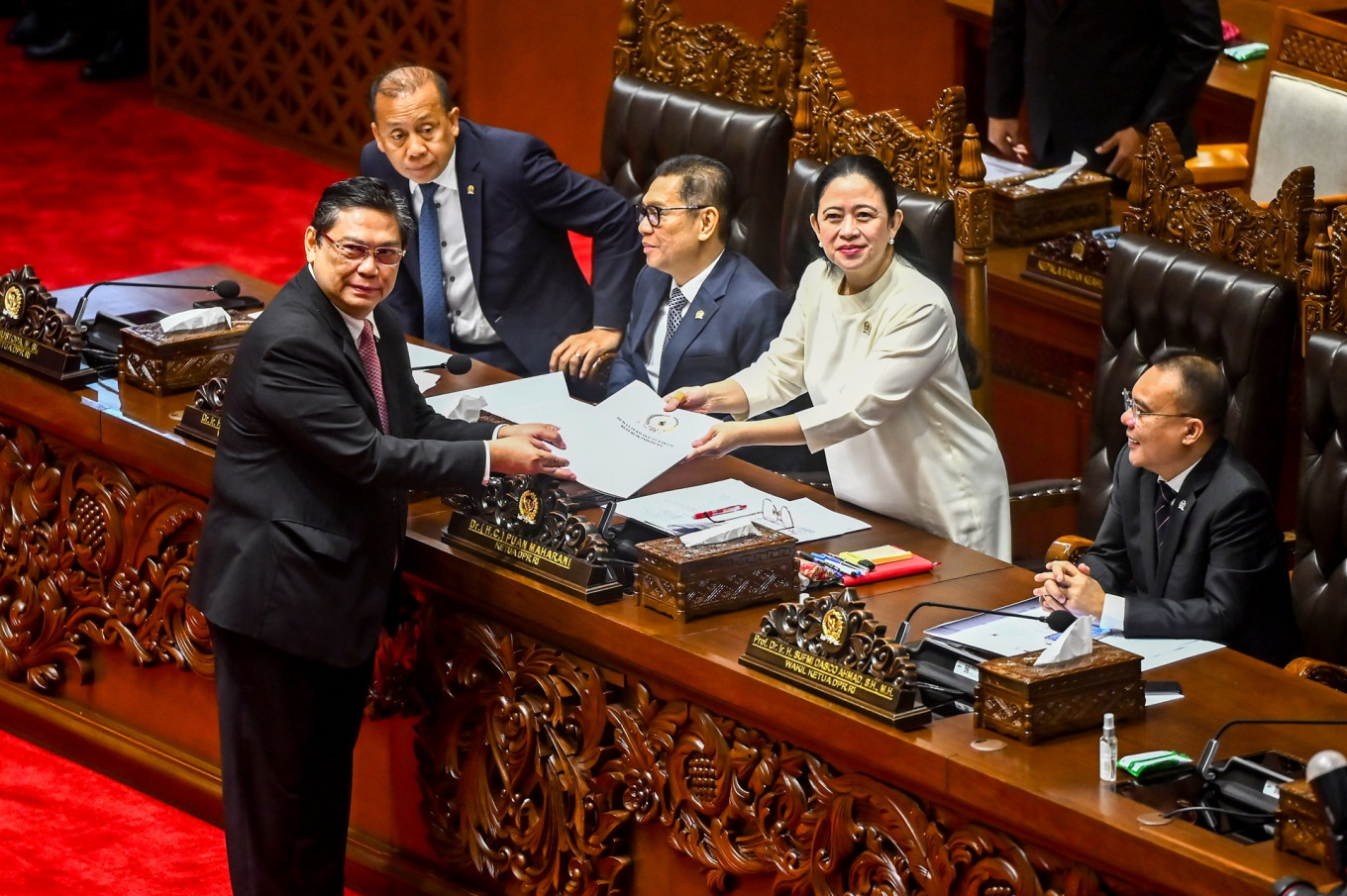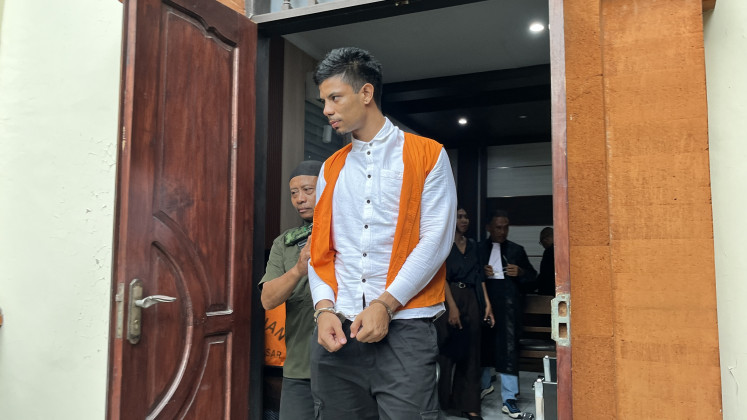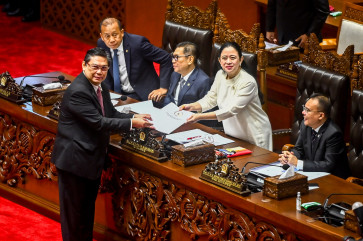Popular Reads
Top Results
Can't find what you're looking for?
View all search resultsPopular Reads
Top Results
Can't find what you're looking for?
View all search resultsPDI-P’s support on controversial bills raises eyebrows
The PDI-P has been facing various political and legal pressures, potentially pushing the nationalist party into the wall and affecting its stance toward the government and coalition of President Prabowo Subianto, analysts have said.
Change text size
Gift Premium Articles
to Anyone
 Unexpected turn: House of Representatives Commission I chair Utut Adianto (left) of the Indonesian Democratic Party of Struggle (PDI-P) hands over the report on the deliberations of the Indonesian Military (TNI) Law revision to Speaker and fellow PDI-P politician Puan Maharani (second right) on Thursday during a plenary session at the Senayan legislative complex in Jakarta, with Deputy Speakers Sufmi Dasco Ahmad (right) of the Gerindra Party, Adies Kadir (third right) of the Golkar Party and Saan Mustopa (second left) of the NasDem Party observing. (Antara/Rivan Awal Lingga)
Unexpected turn: House of Representatives Commission I chair Utut Adianto (left) of the Indonesian Democratic Party of Struggle (PDI-P) hands over the report on the deliberations of the Indonesian Military (TNI) Law revision to Speaker and fellow PDI-P politician Puan Maharani (second right) on Thursday during a plenary session at the Senayan legislative complex in Jakarta, with Deputy Speakers Sufmi Dasco Ahmad (right) of the Gerindra Party, Adies Kadir (third right) of the Golkar Party and Saan Mustopa (second left) of the NasDem Party observing. (Antara/Rivan Awal Lingga)
T
he Indonesian Democratic Party of Struggle (PDI-P), the only de facto opposition party in the legislature, has sparked questions regarding the nationalist party’s readiness to become a genuine opposition against President Prabowo Subianto’s administration after supporting several recently passed controversial bills.
Ever since Prabowo clinched supermajority in the House of Representatives with seven parties in his ruling coalition, many have pinned their hopes on the PDI-P to stay in the opposition in order to ensure checks and balances.
The party has not yet announced its official stance toward Prabowo’s administration, and is expected to do so during its upcoming national congress in April.
But the PDI-P has been reluctant to criticize, let alone oppose, any controversial legislation pushed by Prabowo’s administration and ruling coalition in the legislature.
Among the latest examples was the fast-tracked deliberation of a revision to the Indonesian Military (TNI) Law. The revision has raised concerns over the military’s growing role that could lead to the return of Soeharto’s dwifungsi (dual function) doctrine, which allowed military officers to have a significant influence over civilian affairs by holding civilian positions without retiring.
During the deliberations for the bill, the PDI-P defied public expectations by taking up a key role in the work for the bill. Its senior lawmaker Utut Adianto led a working committee that oversaw the deliberation process, with the party’s House faction eventually throwing its weight behind the bill.
Such a position was taken despite the PDI-P’s matriarch Megawati Soekarnoputri voicing her opposition last year to a plan to revise laws governing the TNI and National Police, emphasizing the importance of maintaining the separation between both forces, as mandated by the reform movement after former president Soeharto’s downfall.

















